Overview
The Philippines Socioeconomic Panel Survey (PSPS) is a twenty-year survey in rural Western Visayas providing policymakers and researchers the opportunity to evaluate the impact of social innovations that improve lives.
One major constraint in evaluating the effectiveness of social programs is the lack of long-term and high-quality data. Most data collection efforts focus on a few variables of interest relevant to a particular policy question or impact evaluation and are conducted at a single point in time. However, panel studies have the potential to provide rich data by regularly tracking individuals over an extended period of time on a wide range of dimensions.
Innovations for Poverty Action (IPA) Philippines and the Global Poverty Research Lab (GPRL) at Northwestern University have partnered with the Philippines Institute for Development Studies (PIDS) and the University of the Philippines School of Economics (UPSE) to launch a twenty-year panel survey, tracking approximately 15,300 rural households across Western Visayas. The survey will cover demographic information, economic indicators, and key priority sectors in the Philippines, such as education, livelihoods, health, and migration (see the full questionnaire below). By targeting a specific region in the Philippines, we are able to deepen our understanding of household circumstances and choices over the years, avoiding being “thinly spread” across the whole archipelago while only capturing a fraction of these complex variables.
The PSPS in Western Visayas will provide publicly available data for government actors, researchers, and practitioners to better understand the long-run processes of social and economic development through regular in-person data collection efforts every four years. This data will serve as a baseline, midline, and endline for different studies, enabling rigorous impact evaluations that measure the impact of programs and policies before they are scaled up nationwide.
The first wave of data collection started in December 2023 and was completed in January 2025, with subsequent waves collected every four years until 2043. The data will become publicly available by the end of 2025.
The PSPS is possible through the generous support of the Global Poverty Research Lab (GPRL) at Northwestern University.

Studies Leveraging the PSPS
The following studies have sub-sampled from the PSPS, leveraging twenty years of data collection to measure long-term effects:
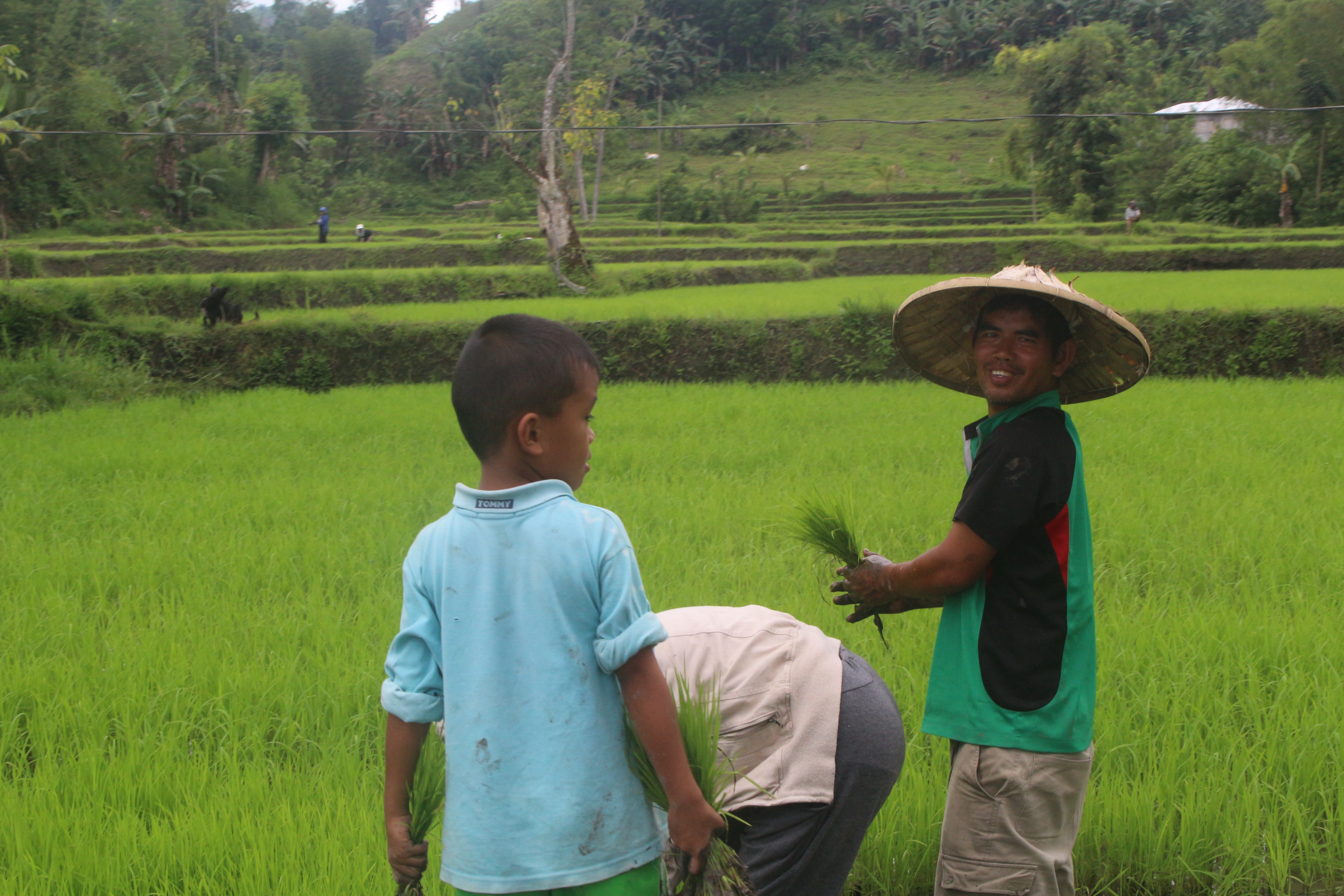 | Combining Cash Grants with an Ultra-Poor Livelihoods Training Program in the Philippines |
 | Exploring the Long-Term Impact of Natural Disasters on Child Development in the Philippines |
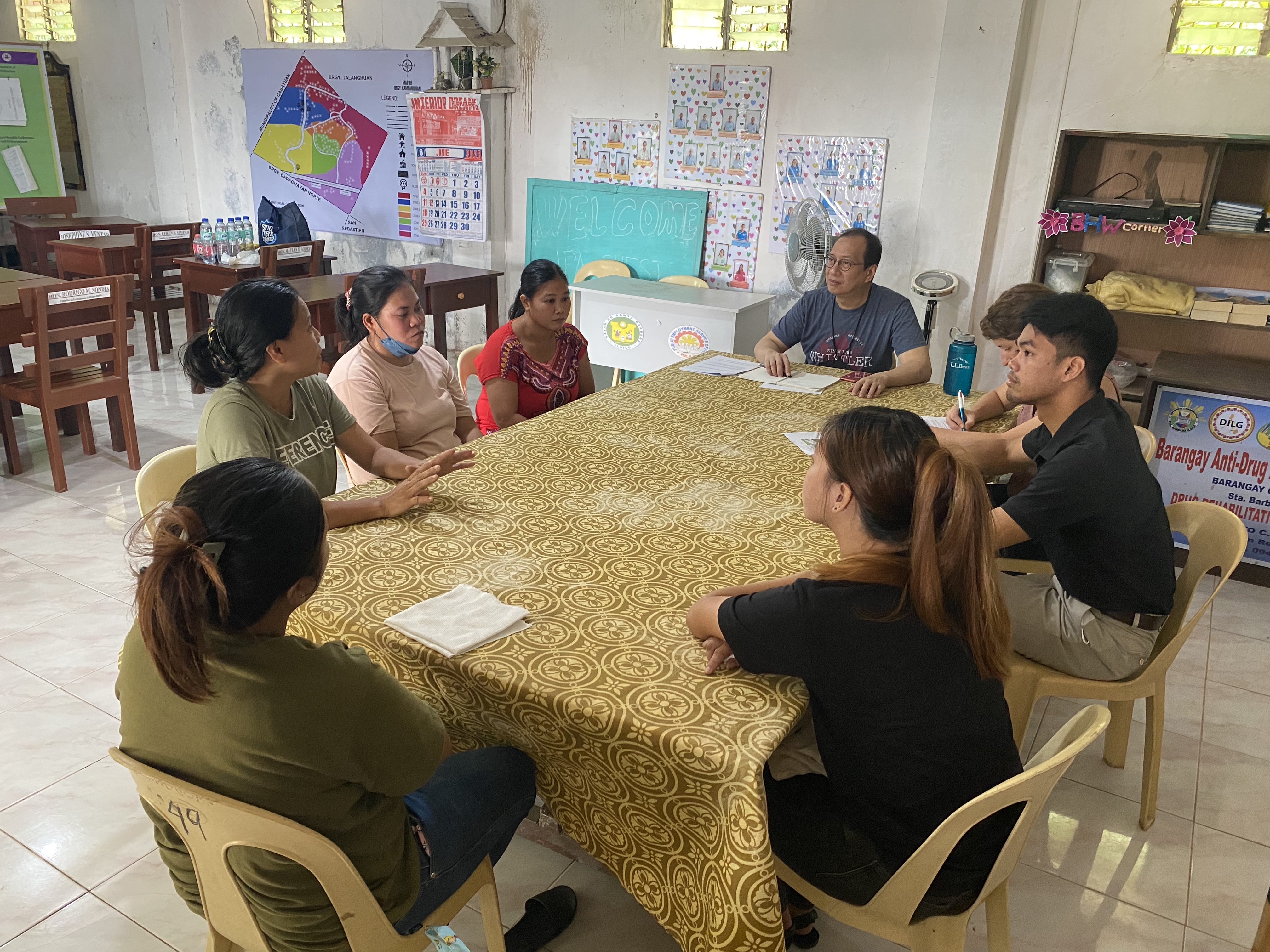 | Measuring the Impact of Aspirations Interventions on Economic and Psychosocial Well-being in the Philippines |
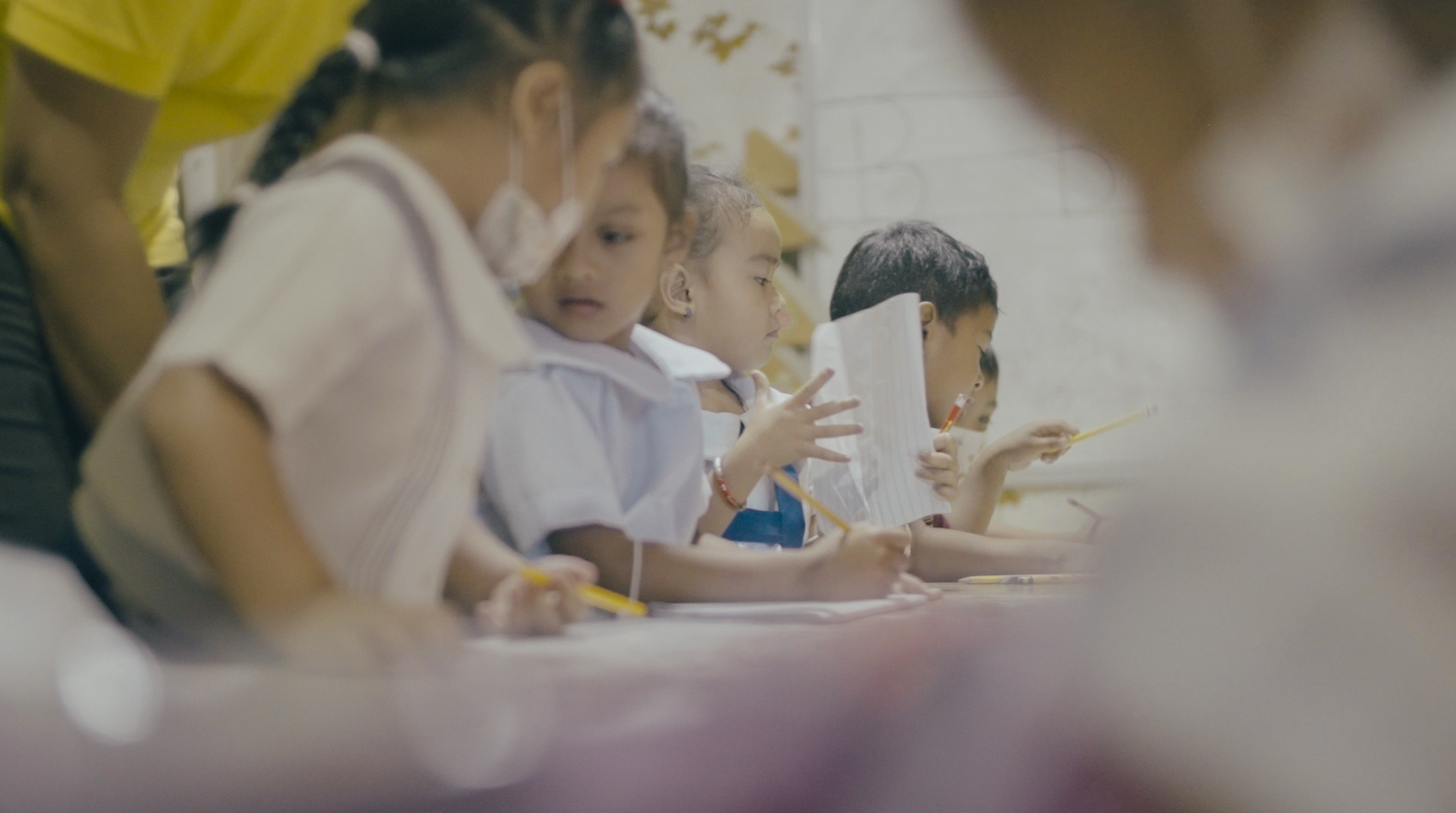 | Supporting Early Education to Increase Higher Education Enrollment in the Philippines |
Our Team
Global Poverty Research Lab
- Dean Karlan, Founder of IPA, Professor of Economics and Finance at Northwestern University's Kellogg School of Management, and Co-Director of the Global Poverty Research Lab
- Christopher Udry, King Professor of Economics and Co-Director of the Global Poverty Research Lab at Northwestern University
- Osvaldo Soto Franco, Research Analyst
- Erin Ntalo, Research Manager
- Isabel Oñate Falomir, Director of Research
- Guangqian (Shine) Yang, Research Analyst
Innovations for Poverty Action
- Jed Dimaisip-Nabuab, Associate Research Manager
- Mariel Antoinette Felizardo, Research Associate
- Aubrey Jolex, Research Associate
- Rene Marlon Panti, Research Manager
- Sneha Stephen, Senior Research Manager
- Gelen Emil Turano, Policy & Project Development Associate
The Data
The PSPS measures how communities change over time by having in-person conversations with the same households, individuals, and village officials. Our 2023-2024 data is organized in nine topics, as follows:
Roster, Education & Member  | Consumption
| Wage & Unearned Income  |
Agriculture 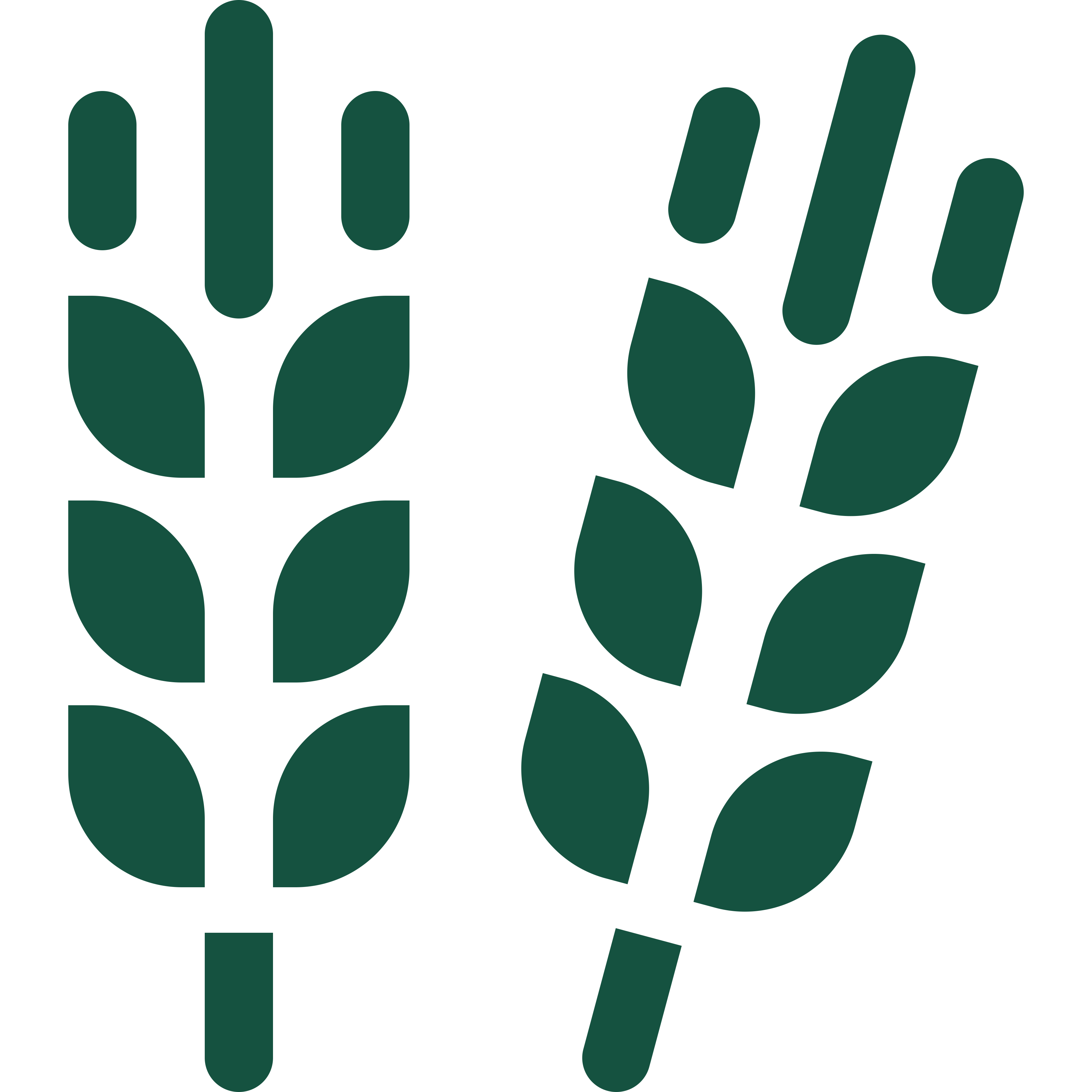 | Non-Agriculture Business  | Assets  |
Household Characteristics & Vulnerability  | Financial Inclusion  | Health  |
Questionnaires: Find out what types of questions were asked in this round of the PSPS by viewing the following questionnaires:
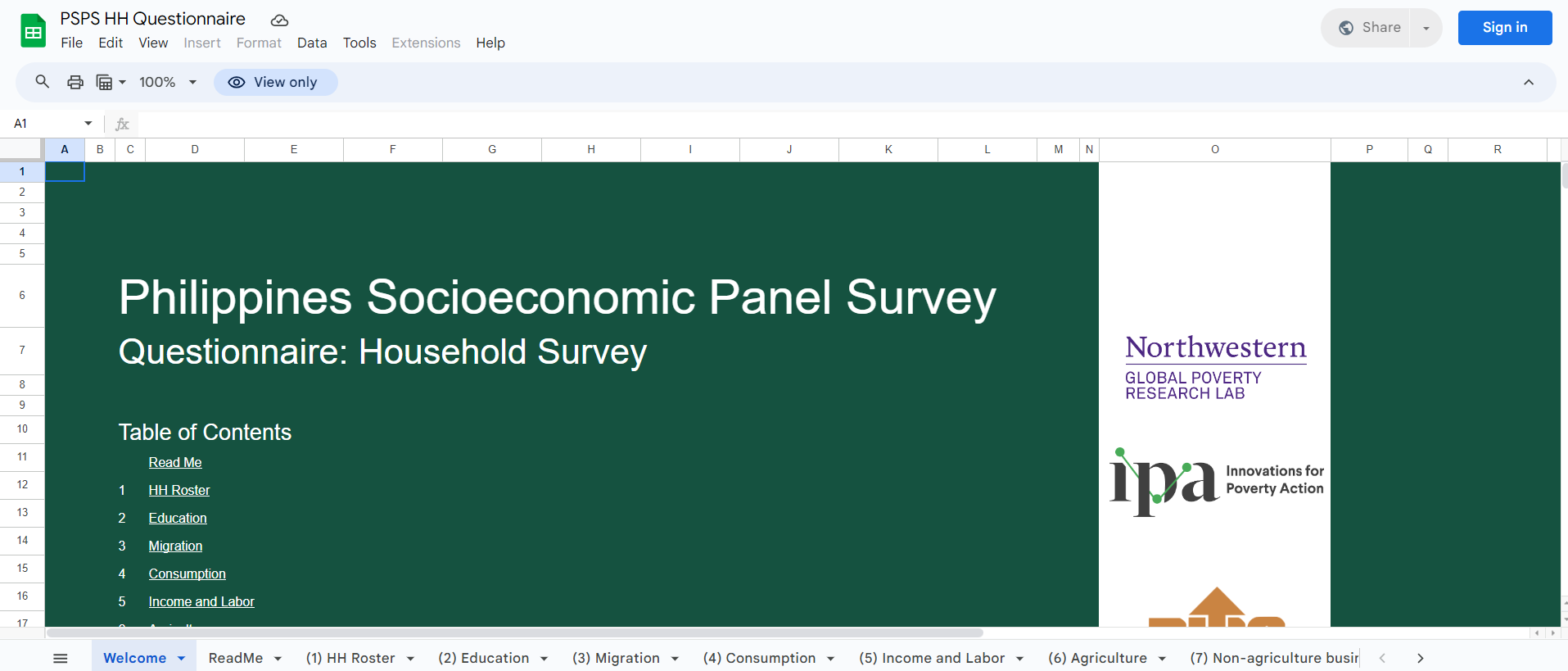 | 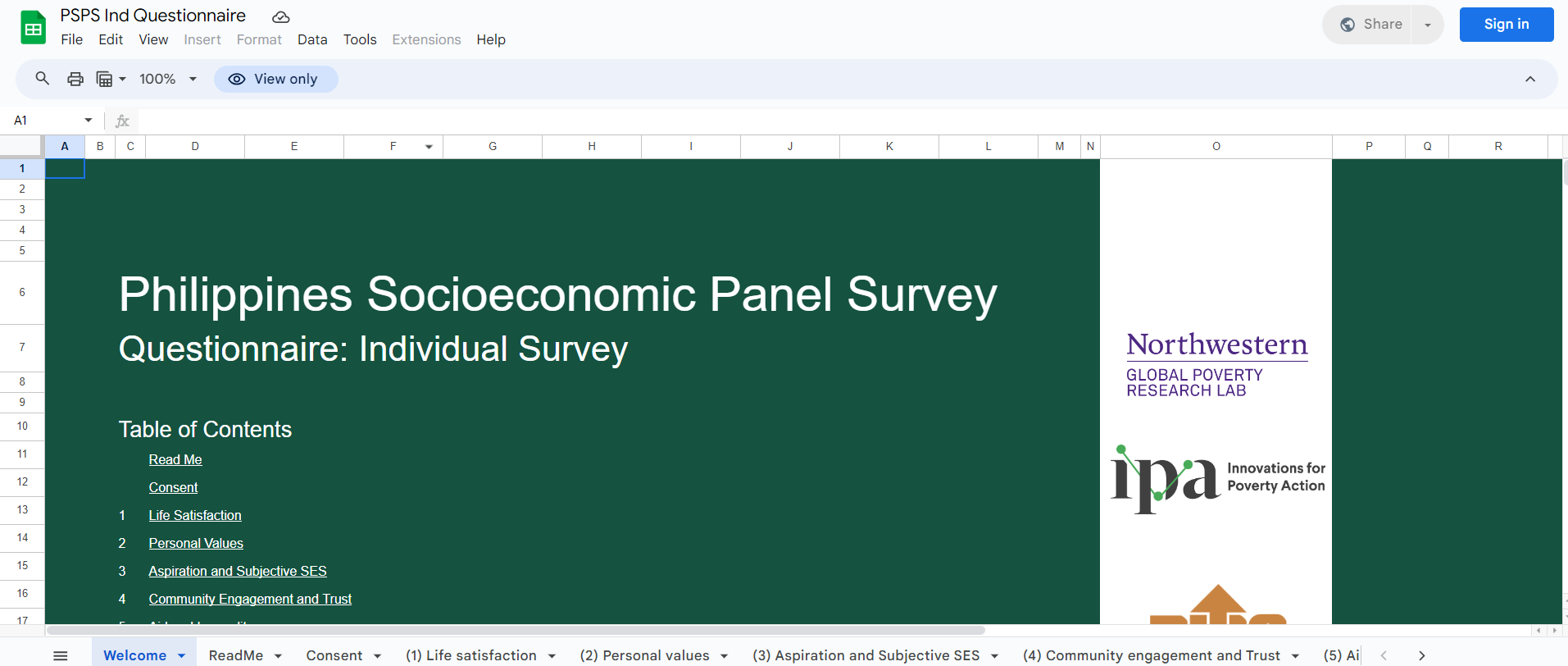 | 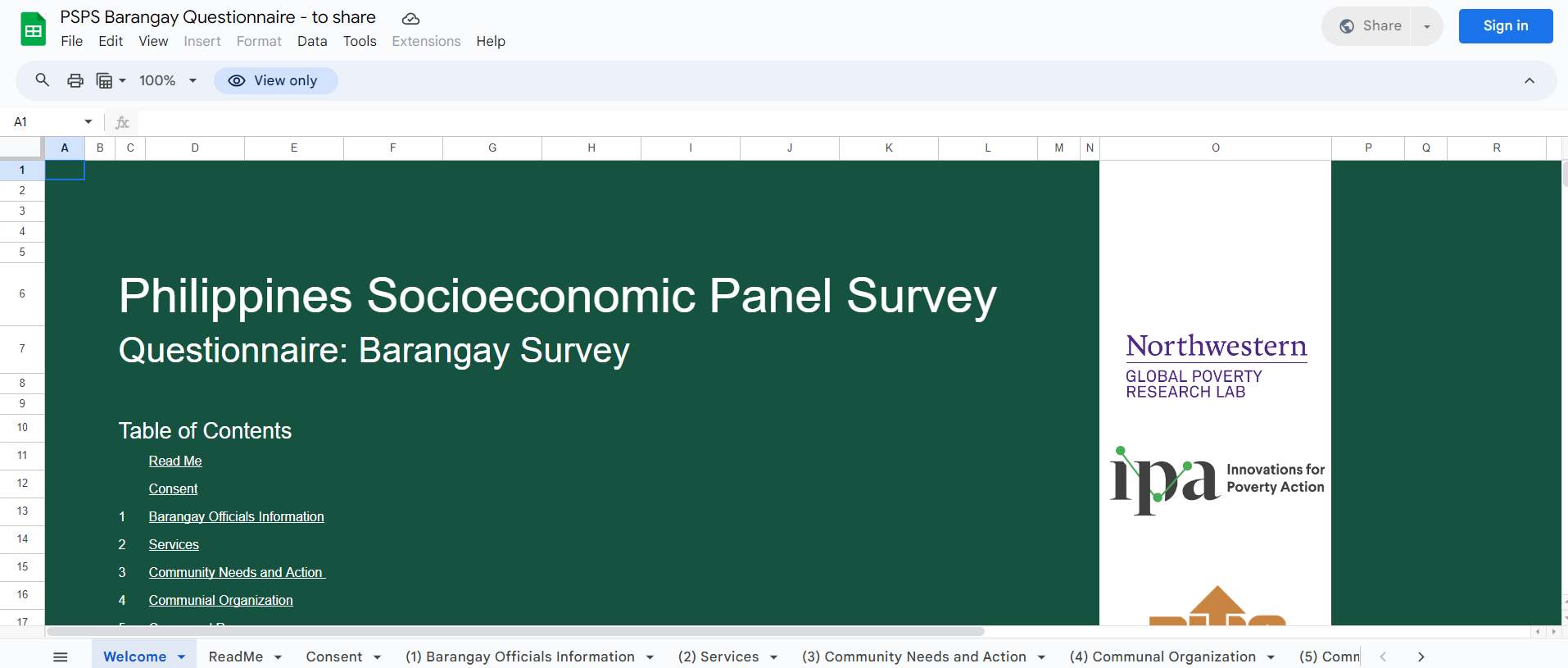 |
Household Survey Data: To access the data for the household questionnaire, including datasets for each of the topics covered by the survey, please fill out our short Google Form. Once you complete the form, you will be directed to a separate webpage to view and download the data files.
Partners
Global Poverty Research Lab

The Global Poverty Research Lab (GPRL) at Northwestern University is an academic hub for empirical developmental economics. Founded in 2017, GPRL focuses on empirical evidence and interdisciplinary engagement to understand drivers, consequences, and solutions to global poverty issues.
Much of GPRL's research is organized into three geographic clusters - the Philippines, China, and Ghana. Within each cluster, GPRL researchers conduct research on various topics including agriculture, education, health, and financial access. GPRL recognizes the value of a cluster-based approach to research, as it allows for a more comprehensive understanding of the issues, leveraging common infrastructure and creating complementarities between projects. In addition to the geographic clusters, GPRL has a Research Methods Cluster to improve data quality, research design, and fieldwork implementation, and an Evidence to Policy cluster, that looks into the relationship between research and policy applications.
Northwestern University is the PSPS’ main funder and houses the academic leadership of the panel survey. Since 2019, GPRL and IPA work very closely in designing and implementing the PSPS, as well as developing projects to leverage the PSPS long-run data.
University of the Philippines School of Economics

The University of the Philippines School of Economics (UPSE) is a degree-granting unit of the University of the Philippines Diliman. Established in 1965, UPSE continues to adhere to international standards of excellence and constantly introduces innovations in teaching, research and public service. UPSE has an internationally renowned Ph.D. program in economics.
Awarded as the Center of Excellence in Economics in 1999 by the Commission on Higher Education, the School is known for graduates who have been rigorously trained and prepared to become leaders in the field. Many of the prime movers in government, business, civil society and academia obtained their formal training in economics from UPSE.
UPSE occupies the buildings of the Philippine Center for Economic Development along Osmeña Avenue, UP Campus, Diliman, Quezon City.
The PSPS will prioritize evidence that is generated locally and used locally. Following this mission, UPSE is supporting the PSPS by grounding the survey and sub-studies within local academia, connecting academics and researchers to our work, and providing mentorship opportunities and fellowships to young PIs and recent graduates.
Philippines Institute for Development Studies

PIDS serves as the Philippine government's primary socioeconomic policy think tank. Since its establishment in 1977, PIDS has been engaged in the conduct of policy-oriented studies to assist policymakers and planners in crafting development policies, plans, and programs that are based on sound research evidence. It has completed numerous studies on a wide range of development topics. These studies have supported the Philippine government in the formulation of relevant policies and programs that are vital to attain inclusive and sustainable development. The Institute has also made significant contributions and influence to Philippine policy development through its active and close collaboration with Congress, government agencies especially the oversight offices (National Economic and Development Authority, Department of Budget and Management, Department of Finance), academic and research organizations, private sector, civil society, and international organizations. Its research outputs are widely disseminated through publications, seminars and conferences, knowledge databases, and social media.
The PSPS will prioritize evidence that is generated and used locally. Following this mission, PIDS is supporting the PSPS by ensuring the data generated by the survey and evidence generated by PSPS sub-studies is most useful to key decision makers in government. PIDS will connect our work with both central and local government and provide opportunities such as policy dialogues and networking platforms to bring together research and policy.
How to Get Involved
IPA Philippines is seeking implementing partners—such as governments, NGOs, and multilateral organizations—who are interested in measuring the impact of their programs or testing out new innovations before they are scaled up. The PSPS will provide a holistic approach to answering policy and program questions through overlapping new studies with our PSPS household sample.
For more information about the Philippines Socioeconomic Panel Survey, data access, and how to inform your programs, please complete our Get in Touch form.













